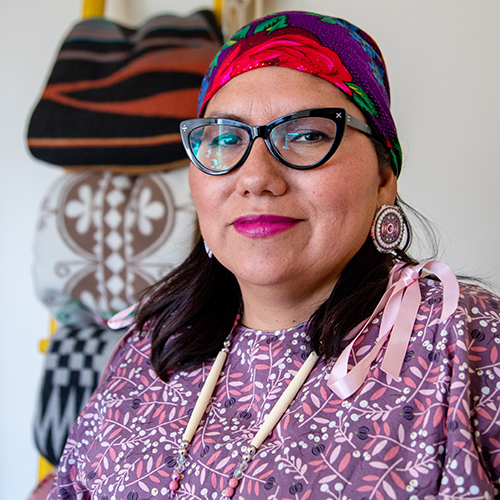Reclaiming Higher Education
The Indigenizing Pedagogy Institute is helping to decolonize the classroom while creating visibility for Native students at UW Tacoma.
This Section's arrow_downward Theme Info Is:
- Background Image: ""
- Theme: "light-theme"
- Header Style: "purple_dominant"
- Card Height Setting: "consistent_row_height"
- Section Parallax: ""
- Section Parallax Height: ""
A group of 12 UW Tacoma faculty are taking part in the inaugural Indigenizing Pedagogy Institute (IPI). The 12 faculty are joined by three UW Tacoma professional staff. The IPI is hosted by the Center for Equity and Inclusion (CEI) and is run by the School of Education Director of Educational Leadership Doctoral Program Robin Zape-tah-hol-ah Minthorn.
The year-long institute has two objectives. “The overall goal is to create visibility and support for Native students, but also to hold us accountable as faculty that we need to incorporate Tribal and Indigenous realities into the narrative,” said Minthorn.

A call for applications went out last spring and the program officially started in late summer. “We did one-on-one information sessions to find out what IPI participants' interests were,” said Minthorn. “We also hosted a day-long engagement session where all of the faculty and staff got the opportunity to learn about local tribal history and contemporary realities.”
This work asks participants to rethink higher education with an emphasis on decolonization. Faculty and staff in the program will spend the fall quarter thinking about where they want to direct their energy. “Are they going to focus on their syllabi or on the space in their classrooms or maybe the curriculum?” said Minthorn.
Last spring, UW Tacoma Tribal Liaison Gabe Minthorn distributed a survey to Indigenous students about what they would like to see happen on campus and how non-Indigenous faculty could support them. “One of the things student’s shared is the importance of having a land acknowledgment in the syllabi,” said Robin MInthorn.
Incorporating a land acknowledgment is one approach that can help decolonize the classroom, but there are others. Robin Minthorn suggests faculty could incorporate more Indigenous scholars into the curriculum or could reorganize the interior class space. “This isn’t possible in every room but in some spaces, we could rearrange the desks into a circle or some other format that isn’t so strict and impersonal,” she said. “Also, in non-pandemic times we could bring in food and have gatherings.”
Participants will get a chance to receive feedback on the changes they’ve made. Robin Minthorn is working on an Indigenous Pedagogy and Knowledge Gathering for spring 2022 where reciprocal exchanges can be cultivated. Faculty and staff in the program were already presented with key insights through the survey Gabe Minthorn sent out to Indigenous students. “One of the things they told us is that they don’t want to be used as the “Native voice,” in the classroom,” she said. “Also, it’s important to remember that just because faculty and staff are doing this work, that doesn’t mean they speak for Indigenous people.”
Minthorn hopes this inaugural Indigenizing Pedagogy Institute is just the beginning and that the IPI will become a regular part of Equity and Inclusion programming. “We have one of the most diverse student populations among the three UW campuses,” she said. “We need this for our campus, we need to be actionable and intentional in what we’re doing.”
Recent news
Main Content
Gathering Strength
News Tags on this arrow_upward Story:
- None
Main Content
UW Tacoma Enrollment up 4% for Autumn 2024
News Tags on this arrow_upward Story:
- None
Main Content
Celebrating First Gen
News Tags on this arrow_upward Story:
- None



